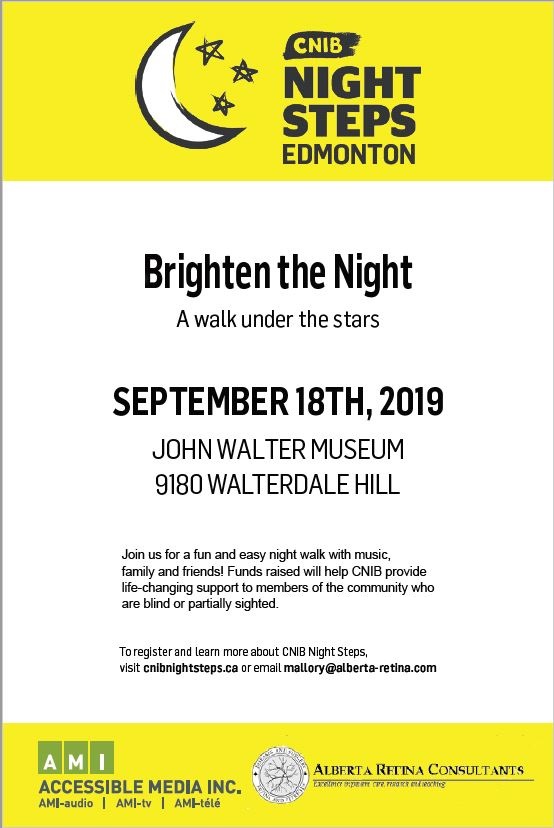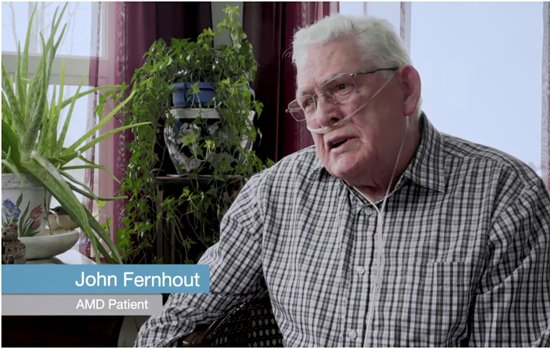
Fundraiser: CNIB Night Steps 2019

Doctors warn about risk of eye injuries from Nerf toy guns
Edmonton Journal Link:
Video Link from CTV News
https://www.ctvnews.ca/health/doctors-warn-about-risk-of-eye-injuries-from-nerf-toy-guns-1.4469250
See The Possibilities Campaign- Featuring Dr. Matt Tennant
May marked Vision Health Month. As part of our See The Possibilities campaign, we worked with physicians and patients to help build awareness regarding the importance of regular eye exams, early detection and eye health signs and symptoms Canadians should watch out for. To add depth and news value to our story, we surveyed Canadians from coast-to-coast to uncover their attitudes and habits around eye health. Through this survey, we discovered that a majority of Canadians experience symptoms of potential eye disease (59 per cent) but only half seek treatment from a health care professional (54 per cent). We leveraged this finding to craft our press release for Vision Health Month. In addition, we launched See The Possibilities’ new Instagram and Facebook accounts. On our Facebook page, we shared COS’ latest patient video featuring Dr. Matt Tennant and AMD patient, John Fernhout. To date, the video has been viewed over 417,000 times and has been shared over 150 times.

Through proactive media relations, our team secured interviews for our physicians with top-tier publications. Coverage highlights included Dr. Marcelo Nicolela’s interview with CTV Atlantic News at Five, resulting in 544,000 media impressions with over 1,130,921 more from earned coverage and press release pick up. Other coverage included additional physicians in Huffington Post, What She Said Talk, CTV Atlantic Morning Live and more. To date, the year-long program has generated 15,483,010 impressions.

Article Provided by:
Global News: Alberta goverment to start paying for cost of drugs for vision loss
630 Ched: Government okays eye drug that’s the centre of controversy
Published by 630 CHED
September 30, 2015
The province has announced a new pilot project that it says will provide more treatment options for patients, especially aging seniors suffering from vision loss. It should save them in co-payment costs approximately $300 every year.
CBC News: Alberta approves use of cheaper alternative drug for eye treatment
Three-year pilot project could save taxpayers up to $46 million, health minister says
Published by CBC News
September 30, 2015
A new government program will allow eye specialists and their patients to choose between two drugs to treat several conditions that can lead to blindness, Health Minister Sarah Hoffman announced Wednesday.
Edmonton Journal: Alberta health minister announces new eye-care program
Published in the Edmonton Journal
September 30, 2015
The Alberta government says it will save up to $46 million over the next three years by treating more cases of retinal disease with a cheaper drug that has not been approved for eye injections by Health Canada.
While critics warned that Avastin’s side effects and long-term health impacts have been insufficiently researched, Health Minister Sarah Hoffman insisted she had no concerns about the drug’s “off label” status.
She and Edmonton retina specialist Dr. Matthew Tennant said some Alberta doctors have been using Avastin safely and effectively for close to a decade to slow the progress of age-related macular degeneration, and other conditions such as diabetic macular edema and retinal vein occlusion.
Stellar Medical Treatment
Published in the Edmonton Journal
June 17, 2015
The Alberta health-care system gets maligned and maybe it’s justified in some cases. But we have found just the opposite to be the case.
Procedure just might save your eyesight
Published in the Calgary Herald
May 4, 2011
By Joel Schlesinger
Most people think of laser vision-correction surgery as a means to ditch their eyeglasses for good. Yet few realize that a lesser-known procedure may actually help save their eyesight.
Alberta Retina Consultants co-founder Dr. Brad Hinz often sees patients who initially want corrective laser surgery — commonly known as LASIK or PRK — but end up at his office after discovering they are at risk of a potentially serious condition called retinal detachment.